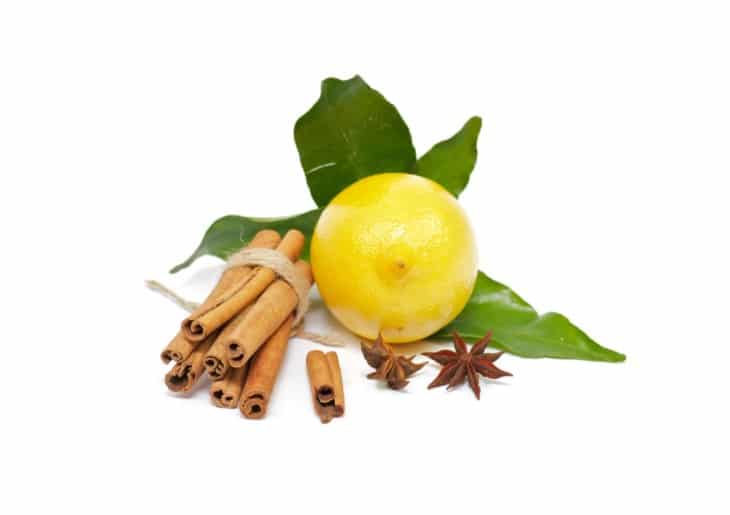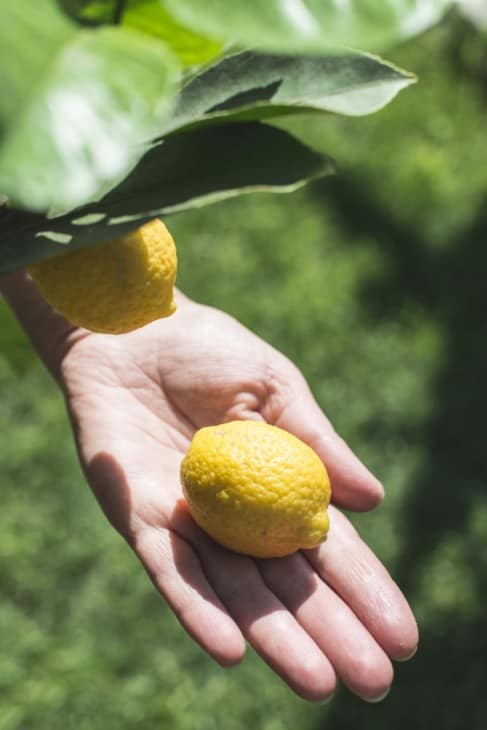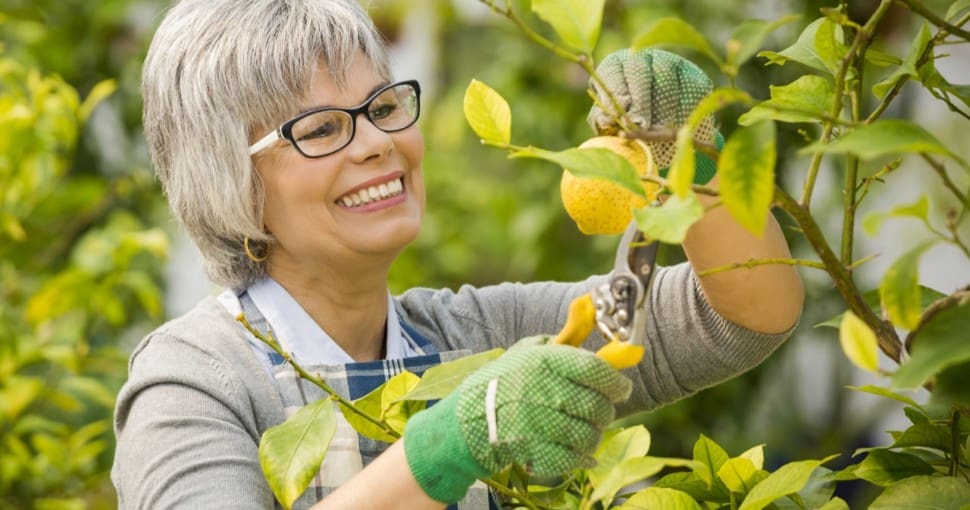Lemon trees have certainly garnered popularity among homeowners and gardeners alike – and it is easy to see why! Besides the beautiful addition the lemon tree adds to one’s garden, it also has plenty of other benefits. Follow along to learn more about the benefits of a lemon tree.
Contents
Owning a lemon tree can have many benefits. The fruit the tree produces has numerous medicinal properties and uses. In addition, lemon trees are easy to grow and may aid in reducing costs for store-bought lemons. Furthermore, the lemon tree is also a beautiful addition to one’s garden.
Related: The 5 best types of lemon trees
1. Lemon Trees Add Beauty
Lemon trees certainly enhance the overall look of your garden; with those lustrous dark green leaves and bursts of yellow, it is indeed a scenic sight. These trees add a different dynamic to your garden and, to some, can even evoke a sense of serenity or positive emotions.
Whether the positive emotions are related to the aesthetic appearance or the fresh citrus fragrance, you are sure to feel good. However, there is a bit of science to help us understand at least one of those things. Studies show that the lemon scent can help reduce stress and boost energy and alertness.

So, that lemon scent does so much more than simply smell good. To top this all off, lemon trees are evergreen. This means that the lush green foliage you see will not change color in different seasons.
Rather, the leaves will stay green throughout the year. Unless, of course, the tree is nutritionally deficient. So, when you look out your window in the fall months, you are sure to see your lemon tree standing out.
2. Lemons Have Health Benefits
Lemons are not only fantastic for cooking purposes but have excellent medicinal properties too. For instance, lemons are high in vitamin C, which has many health benefits.

Vitamin C plays a vital role in helping the immune system to recover from colds and flu. Although one study suggested that it may not do much to help prevent the cold, it may help to reduce the length. So, if you feel you have come down with a cold, using lemons may be to your benefit.
In addition, vitamin C helps to increase the absorption of iron. This is especially helpful as iron deficiency is the leading cause of anemia. However, taking iron supplements with a high intake of vitamin C can lead to gastrointestinal problems.
So, consider opting for natural sources of iron with vitamin C. For instance, squeezing lemon juice over baby spinach salad can maximize vitamin C absorption and iron intake.
Lastly, vitamin C is critical in skincare health. This is because vitamin C helps to produce college – a building block for our skin. One study suggested that ingesting vitamin C in its natural form, or applying it as a topical solution, can help fight against skin damage resulting from sun damage, pollution, and aging.
3. Lemon Leaves Are Beneficial Too
Lemons aren’t the only valuable item you can get from lemon trees. In fact, the leaves of the lemon tree are often overlooked and can be used for many different purposes. Lemon leaves are used as an excellent addition to culinary dishes, decorations, and seasoning.
So, for instance, if you are looking for a new way to grill your meats, line the grill bed with lemon leaves, or wrap the leaves around meat or fish before grilling – yum. In addition, lemon leaves have a fantastic aroma that is often used to impart bold flavors to dishes.
Furthermore, these leaves can be used as an excellent mold for chocolate leaves. Simply wash the leaves before use, paint the melted chocolate over the leaves, leave to set, and then peel off. Easy as that.
Alternatively, if you are in a mood for a tasty hot drink, try lemon leaf tea. An infused lemon leaf tea is sure to leave you feeling warm and fresh. Or add a lemon leaf to your standard cup of tea for a blast of flavor. As you can see, the leaves of this tree can have so much more uses than simply looking pretty on the tree.
4. Lemon Trees Are Easy To Grow
The lemon tree has gardened popularity points with this fact: lemon trees are easy to grow. That is, of course, if all of its needs are adequately provided for. So even novice of gardeners can try their hand at planting one of these trees.
Although lemon trees have their preferences – to grow in subtropical or tropical climates- they can grow in almost all climates. This tree can grow in a range of climates except for hardy cold temperatures. And to add to it, these trees can grow fruit almost the whole year-round.
In addition, lemon trees also make excellent houseplants. So, if you feel your climate is a bit too harsh for the lemon tree, you can grow the tree in a container. Having a lemon tree as a houseplant is fairly easy too. As long as you provide adequate drainage and room for growth, the tree should grow with ease.
Growing a lemon tree can be a rewarding experience, and it is undoubtedly a tree one must-have.
5. Lemon Trees Can Save Money And Time
Lemons can sometimes be on the expensive side. And if you are like most people, money may seem to be put to better use somewhere else. So, fresh lemons may not be a staple you find in the average Joe’s home.

In addition, what may make it seem worse is that many recipes call for lemons. So, often individuals decide to omit this ingredient due to pricing or just the inconvenience of driving down to the shops for a packet of lemons.
But if you have a lemon tree in your garden, it can save you some money and time. When a lemon tree has reached maturity, it can produce up to 200 pounds of lemons per year.
In addition, you do not have to run down to the grocery store to buy that packet of lemons. Instead, just walk into your back garden, pick your pick of fruit, and you are set to go.







